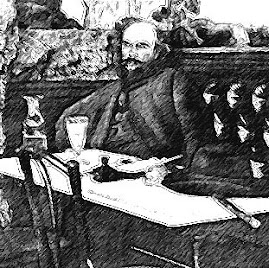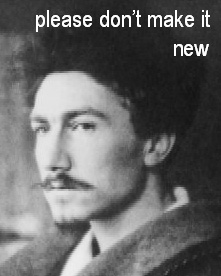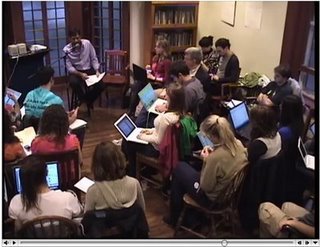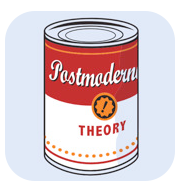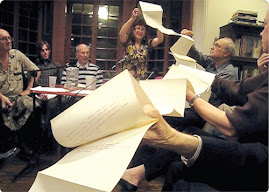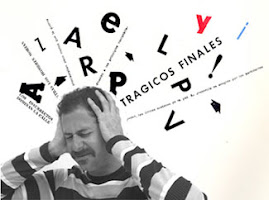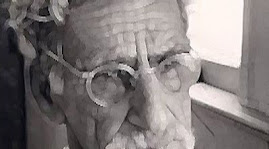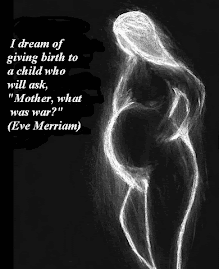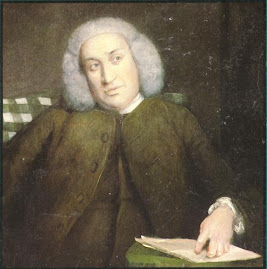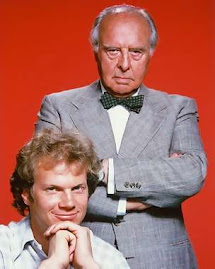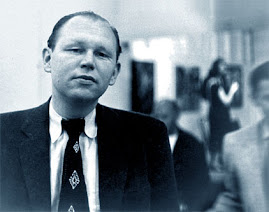
I'm one of those people who've actually read William F. Buckley's
God and Man at Yale. Mind you, I'm not recommending it - just, perhaps, asserting my oddity or mania or both. It's a very poorly argued book but, as you might expect from a young Buckley, dazzling in its audacity. I've always enjoyed the replies, reviews and counterarguments published all over the place in the months after the book made its first splash. McGeorge Bundy's reply appeared in the December 1951
Atlantic:
"When I sat down to review Mr. Buckley's book, I was somewhat concerned lest my readers refuse to believe that so violent, unbalanced, and twisted a young man really existed. His rejoinder removes that concern, and it remains to demonstrate that as a defense it is almost a complete fraud."That's hilarious. Of course "that concern" refers to the fact that such a person as the young Buckley actually existed!
Then of course the attack on Yale by one of its recent own created defenses of the university - I mean Yale, but also the idea of the modern university - that were, well, purely defensive, and also theoretically untenable. I'm now looking at a
New York Times column reprinting the entirety of a report issued by an advisory committee of Trustees and other alumni, a "Report on Intellectual Policy." The gist is that "the business of a university is to educate, not to indoctrinate, its students." This was a distinction they had to make. This was 1952 - February 18 to be exact - and HUAC'ism and McCarthyism and McCarranism dominated the landscape; these old Yalies had to insist that there were no communists on the faculty, and to do so they mostly didn't mention communism but tried to imply it by describing the utter neutrality and apoliticism of the points of view of the faculty. Thus education shares nothing with indoctrination, and students at Yale "study, discuss, and write about facts and ideas without restrictions,
other than those imposed by conscience and morality." That's a huge logical "other than those..." turn. Constraints following the mores of the day - and those established by the tradition of the university - do not hedge free discussion, qualify the student-written word, or create boundaries between what can and cannot be studied in association with a class.
God and Man at Yale ironically did nothing to make this back-and-forth freedom-constraint discussion a significant one, and when Yale entered the 1960s, and students began to demand real freedom to discuss, write and resist curricular indoctrination, it was as if the big Buckley fracas had never taken place.
Buckley and Bozell, in their defense of Joseph McCarthy (
McCarthy and his Enemies) wrote: "A hard and indelible fact of freedom is that a conformity of sorts is always dominant... [Therefore] the freeman's principal concern is that it shall be a conformity that honors the values he esteems rather than those he rejects" (p. 120). The above-cited book - and Buckley's ridiculous Yale book - are both full of hateful contentions and loose empty logic, but I have to say that here the Far Right is being franker about conformity than the Academic Center. A conformity that honors the values the conformed person esteems. That's surely it.

Now that Buckley is gone, mainstream media talking heads are describing his charm and even his talent for ideological crossing. And folks not just on the political right are coming forward to say that they were his friends and that they felt his grace and generosity. I don't really believe any of this, although I do recommend that you leave this zone of the web and go over to YouTube to watch some clips from
Firing Line. The
debate between Buckley and Noam Chomsky on Vietnam in '69 is stunningly good. I also have to say that I was momentarily moved by David Brooks' recollection of Buckley's generosity this past week during the Brooks-Shields political round-up on
The NewsHour. (Brooks as a U Chicago upstart had brutally satirized WFB's limo- and ski trip-centered lifestyle, whereupon Buckley, giving a speech at Chicago, asked if there was a David Brooks in the audience. There was, and Buckley hired him on the spot. Call it strategic cooptation of the Young Right; call it reaching out. Either way, Brooks's gratitude is real.)
My own vision of being caught with Buckley alone has always been that of the oblivious mouse at the end of a cave with a venomous snake. (Psychoanalyze that if you like.)
Now I hold in my hands (as Tailgunner Joe used to say) an unpublished letter dated December 15, 1953, which I read and had photocopied in the Henry Regnery Papers at the Hoover Institution. It's in the Buckley file of Regnery's correspondence in box 10 of the enormous Regnery collection there. Regnery was a conservative publisher of conservative books. He worked with the liberal president of Chicago, Robert Maynard Hutchins, on several Great Books projects, but for the most part he published far right essayists, novelist, literary critics (at least one book on Pound), and poets (Roy Campbell, e.g.) who were having a hard time finding a press. At this early point in Buckley's career, Regnery was a crucial supporter. The problem with
McCarthy and His Enemies was that it was a big and expensive book - $6.50. At that price it would not sell. Buckley and Regnery agreed that if "gifts" (donations) could be made toward the selling of 6,000 advance copies of the book, Regnery could dare to print a larger first run, and the press could lower the price to $5.

So back to this 1953 letter. It's from William F. Buckley to The Honorable Joseph R. McCarthy himself. Buckley says he's thrilled that McCarthy likes the book so much (which he has no doubt seen in galleys). It "justifies the faith that your most earnest friends have in you." So "let me at this point ask your help," and Buckley goes on to ask if McCarthy can arrange for donations to be made to - in effect - subvene the cost of publishing the book. Buckley wonders if McCarthy can arrange with foundations to "accept gifts which would be earmarked for buying these advance copies." This was McCarthy at his height, or perhaps a few months after he'd reached the zenith of his power and influence. I don't know enough about the publication of Buckley's pro-McCarthy book to know if McCarthy did arrange for such "gifts," but I find the letter utterly remarkable. Leave aside that it's untoward for the supposedly independently minded author of a book to ask the book's controversial subject to help pay for its publication. I'm sure this sort of thing happens all the time. But here's the same brilliant, young, already famously autarchic fellow asking an elected government official to use his influence to engineer donations to ensure the profitability of a right-wing publisher. Surely this was deemed (even in those urgent days) to be a huge no-no, and surely WFB knew it.
Or maybe not. Maybe I'm naive about such things. (Maybe? Almost certainly.)
Near the end of this letter, the late great William F. Buckley says to the Honorable Joseph R. McCarthy: "Any suggestions you might have will be exploited with McCarthy-like vigor."
What a clever man he was.
Related: why real conservatives hate Freud.
 A while back Bruce Andrews went on Bill O'Reilly's conservative TV talk/news show and went toe to toe with Bill. Mike Hennessey links the YouTube recording of the encounter and has a few good words to say about it.
A while back Bruce Andrews went on Bill O'Reilly's conservative TV talk/news show and went toe to toe with Bill. Mike Hennessey links the YouTube recording of the encounter and has a few good words to say about it.



































 "I teach horizontally, meaning that while I might begin with a fixed idea of what I'm going to teach that day, I let it drift rhizomatically way off topic, often pulling it back when it gets too far. I rely on non-fixed materials to teach this way; the whole world is at my fingertips. Should I go off on a tangent about John and Rauschenberg and their love relationship as expressed in Rauschenberg's bed, an image of that bed is always a click away. From there, we can head anywhere into the non-fixed universe, be it film, text or sound. And of course, that always takes us elsewhere. As Cage says, 'We are getting nowhere fast.'"
"I teach horizontally, meaning that while I might begin with a fixed idea of what I'm going to teach that day, I let it drift rhizomatically way off topic, often pulling it back when it gets too far. I rely on non-fixed materials to teach this way; the whole world is at my fingertips. Should I go off on a tangent about John and Rauschenberg and their love relationship as expressed in Rauschenberg's bed, an image of that bed is always a click away. From there, we can head anywhere into the non-fixed universe, be it film, text or sound. And of course, that always takes us elsewhere. As Cage says, 'We are getting nowhere fast.'" 
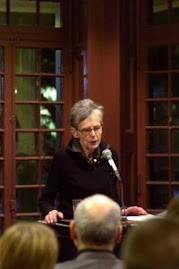
 that anyone has yet got the imaginative measure of that terrifying day six years ago. Certainly our Tolstoy has not crawled out of the rubble. The closest we have, Don DeLillo, succeeded as an essayist-journalist ("In the Ruins of the Future: Reflections on Terror and Loss in the Shadow of September,” Harper’s, December 2001) but, to my mind, failed as a novelist ("Falling Man"). One reason, perhaps, is that the remembered emotion was instantly buried under a pile of cultural junk.' - Tod Gitlin in his review of Susan Faludi's The Terror Dream (written for
that anyone has yet got the imaginative measure of that terrifying day six years ago. Certainly our Tolstoy has not crawled out of the rubble. The closest we have, Don DeLillo, succeeded as an essayist-journalist ("In the Ruins of the Future: Reflections on Terror and Loss in the Shadow of September,” Harper’s, December 2001) but, to my mind, failed as a novelist ("Falling Man"). One reason, perhaps, is that the remembered emotion was instantly buried under a pile of cultural junk.' - Tod Gitlin in his review of Susan Faludi's The Terror Dream (written for 